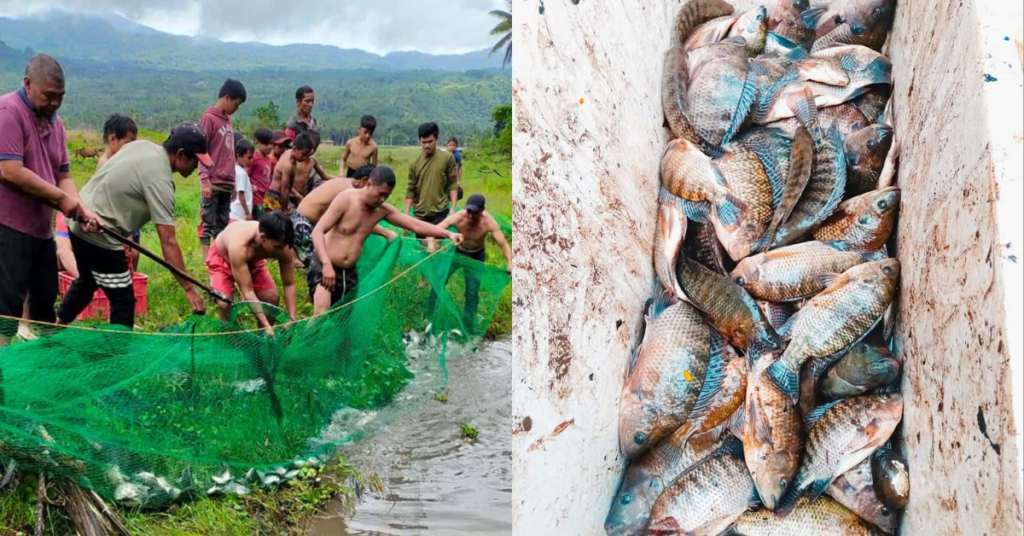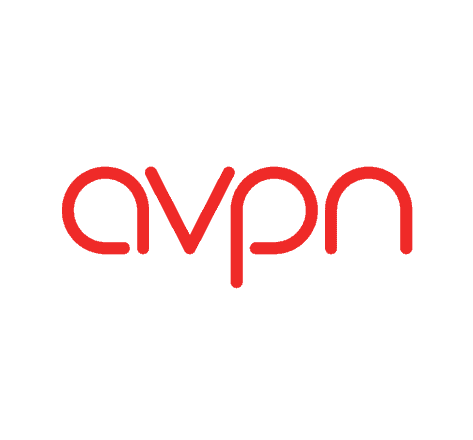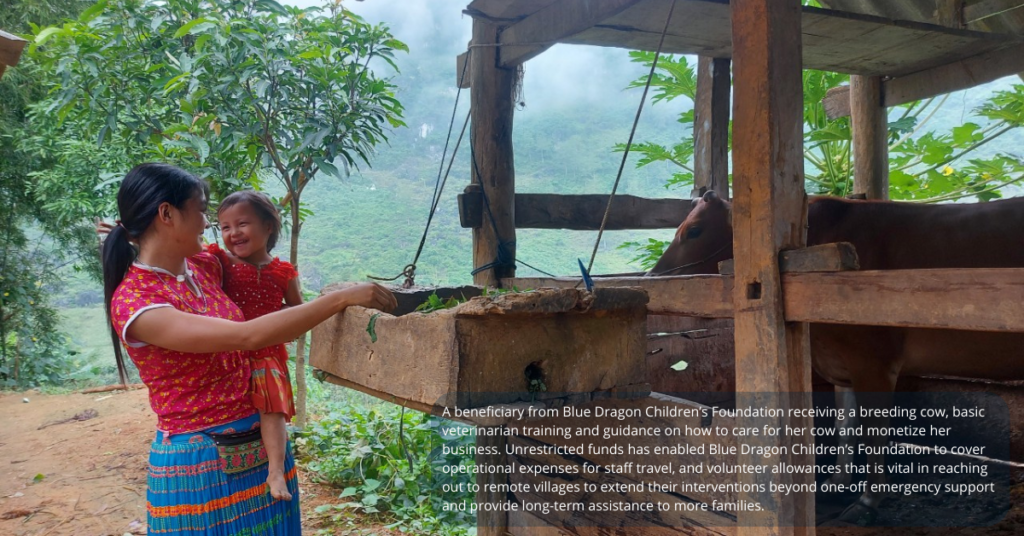Co-author: Elyas Tampubolon, Katrina Agulan, Amanda Kee
10 min read
Philanthropy must address power imbalance instead of enabling it. This is the spirit that has undergirded MacKenzie Scott’s giving, which saw nearly US$ 13 billion in unrestricted funding deployed globally. The results from Mackenzie Scott Foundation’s one-year report have demonstrated that trust is the bridge towards equity. Her approach has also thrown a spotlight on the power imbalance between funders and grantees. It challenges the top-down, paternalistic approach that funders often adopt in their giving and, in doing so, has been transformational for grantees. At AVPN, it led us to the questions: What does the pursuit of equity look like in Asia where trust in philanthropy is hard to earn[1]? And, how does philanthropy, founded on trust, tackle such inequities?
We turned to our year-long partnership with our member KKR to find the answers. At the beginning of 2021, we teamed up to tackle the inequalities we were seeing in Asia that were exacerbated by the COVID-19 pandemic. We zoned in on three areas across nine countries that required urgent interventions: vulnerable communities that lacked food security, safe housing, and were facing health crises; the workforces in many places were at a standstill, and youths who were not equipped to face the unpredictable job market; and finally, frontline workers such as teachers and first responders who were not getting the support they needed. In less than three months, AVPN set up a USD 1 million KKR COVID-Relief Fund to support scalable, high-potential nonprofit organisations, and identified 12[2] of them. What sets the KKR COVID-Relief Fund apart from most, is its founding principle: the fund aims to be unrestricted in nature. Unrestricted funding allows grantees the agency to define how funding received can be used to achieve the intended outcomes of the philanthropic fund. In other words, grantees need only be mission-aligned, but they do not have to be confined to using the grant monies for specific programmes. This approach is based on the belief that grantees have the on-the-ground knowledge and expertise to plan, grow, and innovate around both existing and emergent needs.
One year after disbursement of the funds, here’s what we found out from our grantees.
1. Unrestricted funds acknowledge hidden and ‘unfundable’ costs related to inequalities prevalent in Asia.
Inequity in Asia is complicated by underserved geographies, gender-based violence, and more. These multi-layered challenges often make it difficult to identify root causes or create holistic solutions. It is unsurprising that funds that aim to support these solutions do not see the bigger picture or realise the depth of these challenges, creating pockets of interventions where funding does not reach.
In Vietnam, human trafficking hotspots are often located in far flung villages, where families have little access to formal employment and public services. The Blue Dragon Children’s Foundation not only rescues trafficked victims, but it also helps to rebuild livelihoods, increase resilience and provide access to basic needs like safe housing, healthcare and food. To do this, it is fundamental that staff and volunteers reach these remote villages, and a significant part of Blue Dragon’s operational expenses are put towards such staff travel and volunteer allowances. Unrestricted funding has enabled Blue Dragon to cover these costs, extending their interventions beyond one-off emergency support and provide long-term assistance to more families to meet the increased need due to the economic effects of the pandemic. “The KKR COVID-Relief Fund has provided us a degree of flexibility that isn’t always commonplace. This allows us to reassess priorities and respond to urgent emerging needs as they arise,” says Caitlin Wyndham, Research and Learning Leader at Blue Dragon.
Likewise, the Women’s Aid Organisation in Malaysia has been able to use the unrestricted funding to provide more efficient crisis support services for women and girls who experienced an increase in home violence during the pandemic. It was able to hire more staff, especially when hotline calls surged. It could also care for the staff’s mental welfare. “A lot of funds that we anticipated receiving have been diverted to international emergencies elsewhere,” says Sumitra Visvanathan, its Executive Director. “The KKR COVID-Relief Fund has helped us to plug gaps across various work streams that no other restricted fund can do.”
2. Unrestricted grants give leaders the courage to think outside the box when defining activities and outcomes for their beneficiaries.
Compared to traditional grants that restrict the use of funds to a set of predetermined activities, unrestricted funding trusts that the impact organisation has the expertise to analyse changing needs in the communities and respond quickly to these changes. In fact, when leaders of organisations are empowered to be stewards of their own resources, they are inspired to be creative. Constantly adapting to the COVID-19 situation, the grantees have leveraged the unrestricted grants to design and implement new models that can respond to the dynamic needs on the ground.

ECOWEB is a prime example. It successfully rolled out a financially inclusive initiative in the Philippines through a Revolving Loan Fund (RLF). ECOWEB has been facilitating a survivor and community-led response (SCLR) to support those facing the fallout created by the pandemic, Super Typhoon Odette that made landfall in December 2021, and the Marawi siege[3] displacing 98% of the total population of the city. The SCLR approach gives the community the power to direct the change they would like to see. With the aid of the KKR COVID-Relief Fund, ECOWEB, along with the communities, designed and implemented an interest-free RLF that allows micro-entrepreneurs to access funds to rebuild their businesses. One successful example was a group of dressmakers who participated in the RLF to buy fabrics. The group used the “paluwagan” system, an informal group-saving mechanism that encourages members to monitor their businesses diligently. After six months, the members successfully repaid their loans with a small interest, which was contributed back to the revolving fund for future use. The KKR COVID-Relief fund allowed ECOWEB to prove the success of the RLF model as a sustainable way to restore businesses, opening doors for them to advocate for unrestricted funding amongst its other funders.
Save the Children in South Korea could extend their services to provide psychotherapy sessions and cultural activities to help abused children recover. These initiatives are not typically supported by corporate sponsors, who often prefer pre-designed activities and outputs in order to track and quantify the impact of their fund more accurately.
A similar outcome was shared by WELgee, an impact organisation that helps people who have refugee backgrounds to integrate into Japanese society, where it was able to focus on implementing programmes and achieving its goals, rather than spending time keeping up with the funders’ reporting and documentation requirements. Unrestricted funding allowed WELgee to take the time to build trust with the refugees and implement new initiatives in response to the changing refugee situations in these conflict-marked countries.
3. Unrestricted giving creates the seed for trust and community building.
When philanthropic funds are not just seen as a means or a vehicle to an end, they can do so much more than achieving a set of impact outcomes.
Bahay Tuluyan, for example, found hope in the KKR COVID-Relief fund. It has typically used income generated by its social enterprise arm to fund its vocational training programme for Filipino youths without families, homes, and access to social-emotional support. When the pandemic hit, Bahay Tuluyan had to close down its guesthouse business, losing a vital source of funds. The vocational training programme subsequently came to a halt. “This funding has allowed us to start again, to start the process of not only recovering, as an organisation from the pandemic, but also providing more and more opportunities for young people to reconnect and develop their skills,” says Catherine Scerri, Bahay Tuluyan’s Executive Director. “There is a renewed sense of hope in the air, and we are excited about moving forward.”
In Vietnam, Worldwide Orphan Foundations shared promising results from its unrestricted funding. It prevented 700 children from hunger relapse and 130 youths from dropping out of school. It could also expand into more locations, and use some of the funding for its own staff protection and treatment. Without the KKR COVID-Relief Fund, they would have had to scale down their outreach efforts as they were running out of resources. “Being part of the KKR/AVPN community has been such a warm experience for me,” says Ngo Thi Thuy, the Country Director. “I have never received a grant that came along with such thoughtfulness and kindness. I used to write and implement grants that have very strict guidelines. My team and I (including my colleagues from the US Head Office) are so grateful for the flexibility given to this project.”
4. More needs to be done to educate grantees and funders on the potential of unrestricted funding.
Feedback loops are key to more effective philanthropy, and throughout the grant period, we took a few opportunities to check in with our grantees. We found out that not all of them understood the concept of unrestricted funding in the same way. A few organisations used the funding to continue existing programmes, which in itself is acceptable. Utilising the funds in this way, however, did not optimise the funding to its full potential.
Engineering Good utilised the KKR COVID-Relief Fund to provide sustainable technology solutions to disadvantaged families and persons in Singapore. Despite the resource intensive nature of its work, the organisation was able to continue giving out laptops to children from low-income families, and introduce a repair-and-troubleshooting programme for marginalised communities. Moreover, it was able to launch additional planned programmes. Engineering Good was able to kick start its curriculum on basic digital skills for underserved communities, including single mothers and ex-convicts. The grantee, however, did not realise that they could use the KKR COVID-Relief Fund to experiment with new technologies, especially to support persons with disabilities. Given that there is no existing solution that provides assistive technology for persons with disabilities, it has been very difficult to find funders who would support this idea. Especially with tightening funding belts in the post-Covid era, technological solutions for good are proving to be difficult to seed and scale.
Room to Read, on the other hand, shared how they have been using the KKR COVID-Relief Fund to hire local consultants who can accelerate and expand their core programme across Indonesia. It was also able to maintain relationships with and obtain endorsements from the government, which is crucial for scaling up its library activities in several provinces. One piece of feedback that they gave us was that they were not able to use the funds in countries that the fund had not earmarked. As such, Room to Read was not able to transfer the funds they received to support its activities in other countries, such as Myanmar, where typically little to no funding goes. “Unrestricted funding must be truly unrestricted in order to create the most impact,” says Karunya Jacob, the Development Manager in Singapore.
Where are we now?
While the KKR COVID-Relief Fund has supported more than 100,000 people from 138 vulnerable communities across nine markets, the impact goes beyond that. We found that philanthropy – built on trust – can create systems-level change, not only tackling the power imbalance between funders and grantees, but also driving towards greater social-economic equity in Asia.
The KKR COVID-Relief Fund has provided us with such proof points by empowering grantees to push their boundaries, and supporting them where other funds would not.
Nonetheless, our experience as a fund manager and impact evaluator has shown us that trust-building is still an unfamiliar practice and a difficult topic for amongst Asian funders and grantees. With little data points and even fewer best practices in the region, both funders and grantees are unable to get buy-in to move the needle and/or are confined by historical practices.
More needs to be done. We see this as a need and an opportunity to challenge mindsets, and increase our efforts to demonstrate evidence-based impact around trust-based philanthropy in Asia. We call for funders and organisations on the ground in Asia to be bolder and more intentional in growing trust to bridge equities in this region.
This article is part of an ongoing AVPN initiative on Trust-based Philanthropy were we share our learnings, develop insights with our partners, and lead the conversation about this essential and evolving approach to giving in Asia. To learn more and get connected please click here.
[1] Philanthropy in Asia hampered by trust issues, says report
[2] Bahay Tuluyan, Blue Dragon, Ecoweb, Engineering Good, Generation: You Employed Australia, Generation: You Employed Singapore, Room to Read, Save the Children, Welgee, The Worldwide Orphans Foundation, Women’s Aid Organization, and China Friendship Foundation for Peace and Development.
[3] The armed confrontation between government forces and pro-ISIS militants in Marawi has forcibly displaced 98% of the total population of the city, as well as residents from nearby municipalities, who were compelled to leave due to severe food shortage and/or constriction of local economies. Source: UNHCR Philippines


















